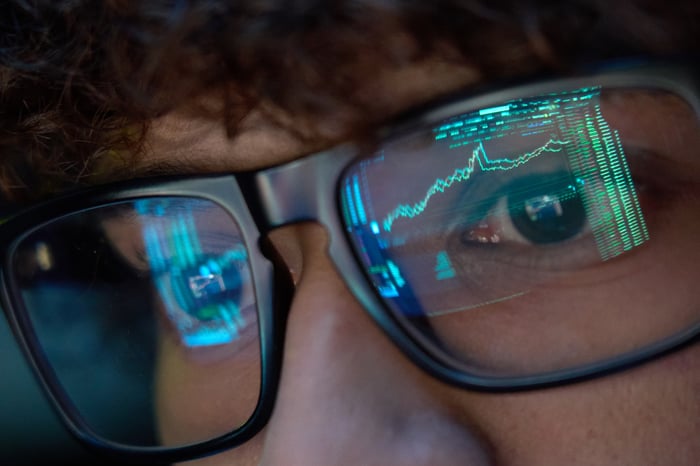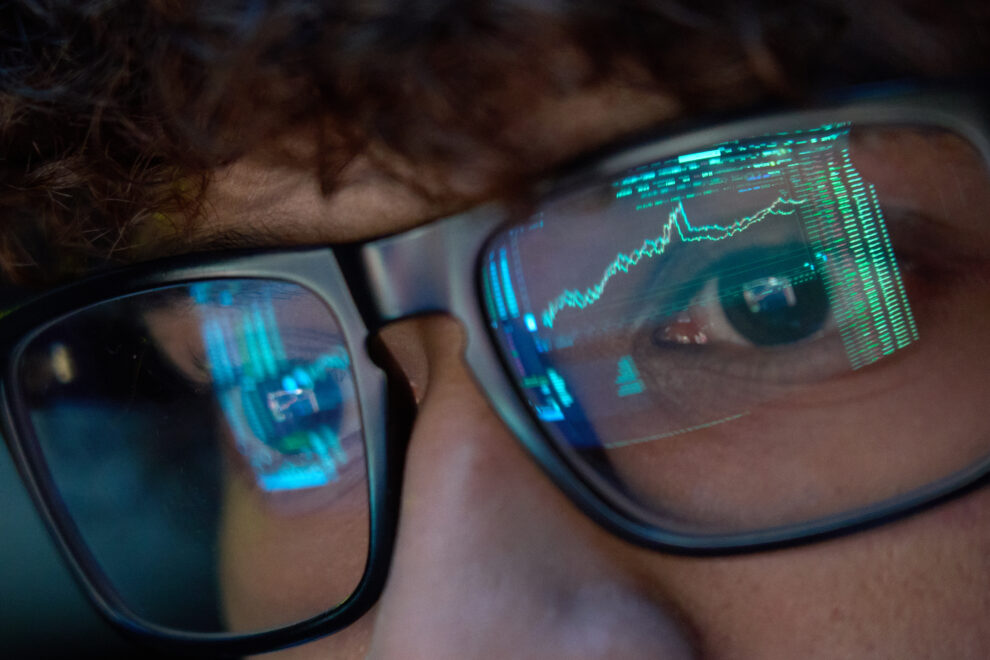Laffont’s Coatue Management sent shares of Wall Street’s two hottest artificial intelligence (AI) stocks packing in the June-ended quarter in favor of a company critical to the AI supply chain.
Thanks to the advent of the internet, information is no longer at a premium for everyday investors. Between earnings season — the six weeks every quarter where a majority of S&P 500 companies report their operating results — and weekly economic reports, investors can become overwhelmed and allow important data to slip through the cracks.
You might not realize it, but what can easily be described as the most important data dump of the third quarter occurred in mid-August.

Image source: Getty Images.
No later than 45 calendar days following the end to a quarter, institutional investors with at least $100 million in assets under management (AUM) are required to file Form 13F with the Securities and Exchange Commission. In simple terms, a 13F tells investors which stocks Wall Street’s smartest money managers purchased and sold in the latest quarter (in this case, the June-ended quarter).
To be upfront, 13Fs are far from perfect. They don’t list short positions (if any exist), and since they’re filed up to 45 days following the end to a quarter, they can provide stale information for active hedge funds. Nevertheless, they do offer invaluable clues as to which stocks, industries, sectors, and trends have the undivided attention of top-tier money managers.
While Berkshire Hathaway CEO Warren Buffett is probably the most-followed asset manager on Wall Street, a number of other billionaire investors also tend to draw a crowd, including Philippe Laffont of Coatue Management. Laffont and his team predominantly invest in game-changing tech stocks and were overseeing close to $25.7 billion in AUM, as of the end of June.
But the real eyebrow-raiser is what Laffont and his team have been up to with three of Wall Street’s hottest artificial intelligence (AI) stocks.
Laffont’s Coatue has aggressively sold shares of Nvidia and Palantir
There arguably haven’t been two hotter AI stocks in recent memory than semiconductor behemoth Nvidia (NVDA -1.36%) and cloud-based data-mining specialist Palantir Technologies (PLTR -2.76%).
Otherworldly demand for AI-graphics processing units (GPUs) has helped Nvidia tack on more than $3 trillion in market value since the start of 2023. Meanwhile, Palantir’s shares are up a cool 601% in roughly 22 months. This gain has been fueled by its AI-driven Gotham platform, which is tasked with helping federal governments plan and execute missions, as well as gather data.
Despite both Nvidia and Palantir possessing competitive advantages and being irreplaceable, Laffont and his crew at Coatue have been decisive sellers of both stocks. Between March 30, 2023 and June 30, 2024, Laffont oversaw the sale of 72% of his fund’s stake in Nvidia. Comparatively, Coatue’s brightest investment minds, which includes Laffont, dumped the entirety of their stake in Palantir in the June-ended quarter (4,816,195 shares).
Although profit-taking is a logical reason that can sum up this selling activity, there are other headwinds that may have encouraged Laffont and his investment advisors to jump ship.
History is the elephant in the room that can’t be ignored, especially with regard to Nvidia. Including the internet in the mid-1990s, no next-big-thing innovation or technology for three decades has avoided an early stage bubble. In other words, investors have a terrible habit of overestimating how quickly game-changing technologies will become mainstream, and it historically ends up poorly for the businesses leading these trends, such as Nvidia.
Additionally, Nvidia is set to face a slew of new competition. Though external competitors receive most of the spotlight, internal competition might be the bigger concern. All four of Nvidia’s largest customers by net sales are developing AI-GPUs of their own, which could ultimately narrow the opportunity for Nvidia to win valuable data center “real estate.”
As for Palantir, valuation might be the most front-and-center concern for Coatue’s investment team. While being irreplaceable at scale does deserve some level of valuation premium, Palantir is now valued at 105 times forecast earnings per share (EPS) for 2025, as well as a multiple of 29 times forecast revenue.
This is an extremely aggressive valuation given that Gotham’s sales ceiling is somewhat limited. This is to say that Palantir will only work with the U.S. government and its allies, which limits the platform’s reach beyond domestic borders.
But while Coatue’s brightest investors have been busy sending shares of Nvidia and Palantir to the chopping block, they’ve been absolutely piling into another top-tier artificial intelligence infrastructure player.
Image source: Getty Images.
Laffont’s stake in this AI infrastructure leader has increased by more than 3,500% this year
During the June-ended quarter, Laffont and his team made six new purchases and added to 21 existing holdings. While most of these additions were relatively small, the one that continues to stand out is Laffont’s aggressive purchases of world-leading chip fabrication company Taiwan Semiconductor Manufacturing (TSM -1.25%).
When 2024 began, Coatue Management was holding just 312,466 shares of Taiwan Semi, and it was the fund’s 66th-largest holding by market value. Six months later, it’s now the third-biggest holding, with 11,393,702 total shares held. This works out to an increase of more than 3,500% in total shares held in the first-half of 2024.
As you can rightly imagine, the excitement surrounding Taiwan Semi has to do with its role in producing GPUs for AI-accelerated data centers. Orders for Nvidia’s H100 GPU (commonly known as the “Hopper”) and successor GPU architecture (Blackwell) are backlogged, which means Taiwan Semi should see long-tail demand for its services.
For its part, Taiwan Semiconductor has been proactively investing in its production capacity. Whereas the company has been shooting for chip-on-wafer-on-substrate (CoWoS) packaging capacity of 80,000 wafers per month by 2026, at least one Wall Street analyst believes Taiwan Semi is a full year ahead of schedule. The packaging of high-bandwidth memory is a cost-effective necessity for AI-accelerated data centers, which means Taiwan Semi plays a vital role in the supply chain.
Although artificial intelligence has been the undeniable wind in Taiwan Semiconductor’s sails, Laffont and his team likely recognize that its production entails far more than just AI-GPUs. For instance, it’s the company responsible for making all of Apple’s customized chips, including those that go into its market-leading iPhone.
If history were to rhyme, once again, and the AI bubble does burst at some point in the future, Taiwan Semi would be somewhat insulated in the respect that it had multiple sales channels well established long before AI was the hottest thing since sliced bread. While these other sales channels fail to offer the same level of growth potential as AI, a broad degree of sales diversity is, ultimately, a positive for Taiwan Semiconductor.
Lastly, Laffont and his advisors may be attracted to Taiwan Semi’s still-attractive valuation. With the understanding that forecasts can and do change, shares are valued at a multiple of 24 times forecast EPS for 2025, with sales and earnings growth of greater than 20%.









